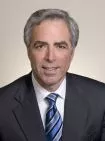The Delaware Supreme Court, sitting en banc, recently affirmed Vice Chancellor Lori Will's dismissal of the plaintiffs' claims in In re Baker Hughes, a GE Company, Derivative Litigation, on the motion of a single-member special litigation committee. Addressing for the first time the Court of Chancery's reliance on live testimony in connection with an SLC's motion to terminate, the Supreme Court expressly reaffirmed that its 1981 decision in Zapata v. Maldonado "explicitly held open the possibility of . . . 'a discretionary trial of factual issues,'" thus blessing V.C. Will's permitting and relying on the live testimony of the SLC's sole member. While the Supreme Court acknowledged that "holding an evidentiary hearing where the credibility of witnesses will be weighed poses a risk of procedural unfairness" and that "credibility determinations do not sit comfortably with the application of the summary-judgment standard" applied in such proceedings, it did not address the means by which the Court of Chancery might ameliorate such risks or expand on application of a summary judgment standard in the case of live testimony. In light of the plaintiffs' acquiescence to the SLC's live testimony and a thorough cross examination of the witness, the Supreme Court held that V.C. Will's reliance on the SLC's testimony was not an abuse of discretion.
While the practical implications of the use of live testimony offered in support of an SLC's motion to terminate remain unsettled, the Supreme Court's ruling reaffirms the propriety of single-member special litigation committees and makes clear that the Zapata process can include live witness testimony. SLCs are well-served to consider whether they might benefit from the use of a "mini trial" where there may be potential issues of fact relating to the factors to be considered in a Zapata hearing.
I. Origins of Baker Hughes Derivative Litigation
In 2017, GE Oil & Gas merged with oil field services giant Baker Hughes in a transaction that left GE with a controlling interest in Baker Hughes and the right to appoint the majority of Baker Hughes' board of directors. In connection with the merger, Baker Hughes entered into more than a dozen commercial agreements with various GE businesses, including supply agreements giving Baker Hughes access to critical GE technology. Those agreements were to terminate if GE's ownership of Baker Hughes fell below 50%.
With the ink barely dry on the merger and related commercial agreements, GE's new management, faced with an increasingly serious liquidity crisis, identified divestment of its stake in Baker Hughes as an option for shoring up GE's balance sheet. A lock-up, however, prevented GE from immediately disposing of its interest in Baker Hughes without the approval of Baker Hughes' Conflicts Committee, consisting of Baker Hughes non-GE-appointed directors. Following a period of intense negotiations between Baker Hughes and GE, in late 2018, the Conflicts Committee and then the full board approved a $2.3 billion secondary offering and Baker Hughes' repurchase from GE of an additional $1.5 billion worth of Baker Hughes shares. In addition, the parties agreed to amendments to the 18 commercial contracts to reflect a more arms-length relationship between GE and Baker Hughes that would survive the anticipated separation.
Plaintiffs sued derivatively, claiming that, despite having tremendous leverage over GE due to GE's liquidity issues, the GE-dominated board agreed to transactions that transferred significant value to GE without any justification.
II. Single-Member SLC Investigates the Challenged Transactions and Recommends Termination of the Litigation
After the plaintiffs survived motions to dismiss, the Baker Hughes board appointed a single-member SLC comprised of the sole Baker Hughes Board member with no ties to the transactions at issue in the derivative litigation. The SLC, assisted by Quinn Emanuel and Abrams & Bayliss, conducted a months-long investigation into the challenged transactions and ultimately concluded that the transactions were entirely fair to Baker Hughes and the litigation should be terminated. In its report appended to a motion to dismiss, the SLC concluded that the Baker Hughes board took full advantage of the leverage it had over GE and that the amendments to the commercial contracts were far more favorable than Baker Hughes could have negotiated if the agreements were allowed to terminate in the absence of GE control, which was likely to happen after the lockup expired.
III. Plaintiffs Oppose Termination of the Litigation, and Zapata Discovery Uncovers Text and Email Messages Between SLC and a Target of SLC's Investigation
Under the Delaware Supreme Court's 1981 decision in Zapata v. Maldonado, the Court of Chancery conducts a hearing on an SLC's motion to terminate derivative litigation to assess, under a summary judgment standard, the independence of the SLC, whether its investigation was in good faith, and the reasonableness of its conclusions. Plaintiffs are entitled to limited discovery into the "independence and good faith" of the SLC and "the bases supporting its conclusions."
Plaintiffs' Zapata discovery uncovered text messages between the SLC and the CEO of Baker Hughes, who was also a defendant in the derivative litigation and thus a target of the SLC's investigation. The SLC, in sworn declarations and in deposition testimony, explained the context and subject matter of the text messages and clarified that he never discussed the substance of the investigation with the CEO. Instead, he explained that the texts and emails related to questions about the logistics of adding new directors to the SLC (which would be within the CEO's purview) or were innocuous, non-substantive comments in emails substantively related to other Baker Hughes board business. The plaintiffs argued that this was "self-serving testimony" that should be disregarded, that it was reasonable to infer from these communications that the SLC was not independent and its investigation was in bad faith, and that such inferences should be indulged in plaintiffs' favor under the summary judgment standard articulated by the Supreme Court in Zapata. Plaintiffs also raised numerous other alleged flaws in the SLC's investigation in opposing the SLC's motion to terminate.
Because his communications with the CEO had become a core issue in the plaintiffs' opposition, the SLC made the decision to testify at the Zapata hearing. This decision raised a number of issues, however—while a footnote in the Supreme Court's Zapata decision states that a court might hold "a discretionary trial of factual issues," there was not one reported decision in the decades since Zapata in which live testimony was heard at a Zapata hearing. Whether such testimony would be permitted and how it could be properly considered by the Chancery Court were open questions. Plaintiffs, having notice of the SLC's intent to testify, raised no objection and instead took advantage of the opportunity to thoroughly cross examine the SLC at the Zapata hearing.
IV. The Court of Chancery, Relying in Part on the Credibility of the SLC's Testimony, Grants Motion to Terminate
In a lengthy opinion granting the SLC's motion to terminate, the Court of Chancery disposed of the myriad issues plaintiffs raised challenging the SLC's independence, good faith, and the reasonableness of its conclusions. Notably, while the court reaffirmed that the burden of a single-member SLC to prove its independence was "particularly hefty," the court did not impose a standard of flawlessness on single-member SLCs (which are often said to be required, "like Caesar's wife, [to] be above reproach"). Indeed, in addressing the communications between the SLC and Baker Hughes' CEO, V.C. Will acknowledged that such communications "should not have occurred" but nevertheless, relying in part on the credibility of the SLC at the Zapata hearing, held that the communications were "non-substantive, and none impugns" the SLC's objectivity or integrity.
V. The Delaware Supreme Court Affirms V.C. Will's Decision Granting the Motion to Terminate, Leaves Open Questions Regarding the Use of Live Witness Testimony at Zapata Hearings
Plaintiffs appealed the Court of Chancery's order dismissing their claims, arguing, in part, that the Court "violated the summary judgment standard by weighing evidence and making credibility determinations" in a proceeding that is akin to a summary judgment hearing. The Court, in a five-paragraph order, focused on two "salient points" that defeated plaintiffs' arguments . First, the Court reaffirmed the propriety of live testimony at a Zapata hearing, shutting down any argument that allowing, and relying on, such testimony was in error: "Zapata explicitly held open the possibility that the Court of Chancery, when considering a special litigation committee's motion to terminate derivative litigation, might hold "a discretionary trial of factual issues . . . ." Second, the Court highlighted that plaintiffs were given notice of the SLC's plans to offer live testimony and failed to object and, indeed, "they cross-examined [the SLC] extensively."
The Supreme Court recognized that credibility determinations "do not sit comfortably with the application of the summary-judgment standard," without agreeing with plaintiffs that such determinations are entirely forbidden. But, the Court disposed of the issue by holding that the time to address the issue was in the Court of Chancery, which "exercises its 'independent discretion' in these matters."
While it remains to be seen whether the Supreme Court's embrace of live testimony and a "discretionary trial of factual issues" will alter the landscape significantly in SLC litigation, parties are advised to consider whether certain issues related to the SLC's good faith, independence, and the quality of its investigation are well-suited for presentation to the court via live witness testimony at a Zapata hearing.
The content of this article is intended to provide a general guide to the subject matter. Specialist advice should be sought about your specific circumstances.

